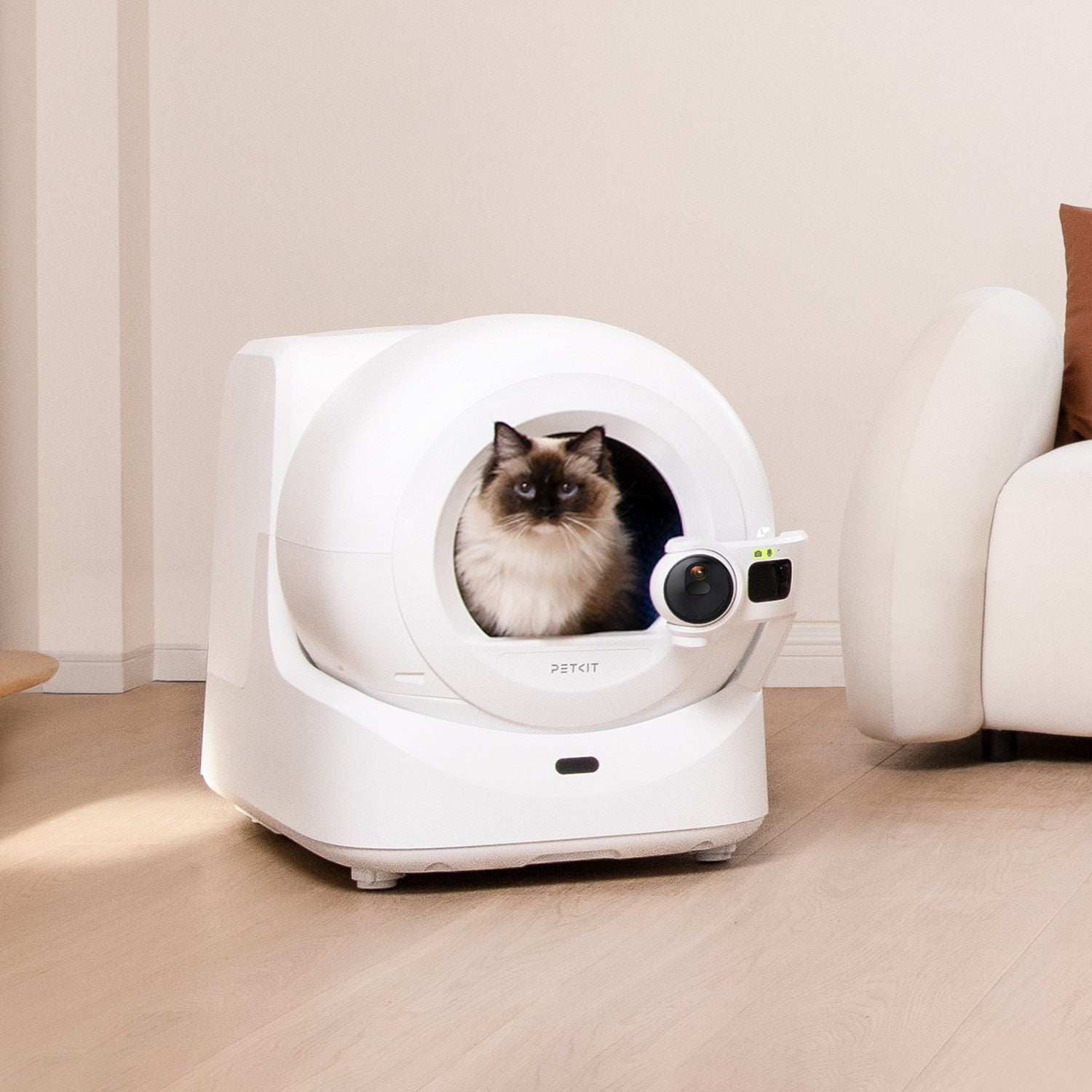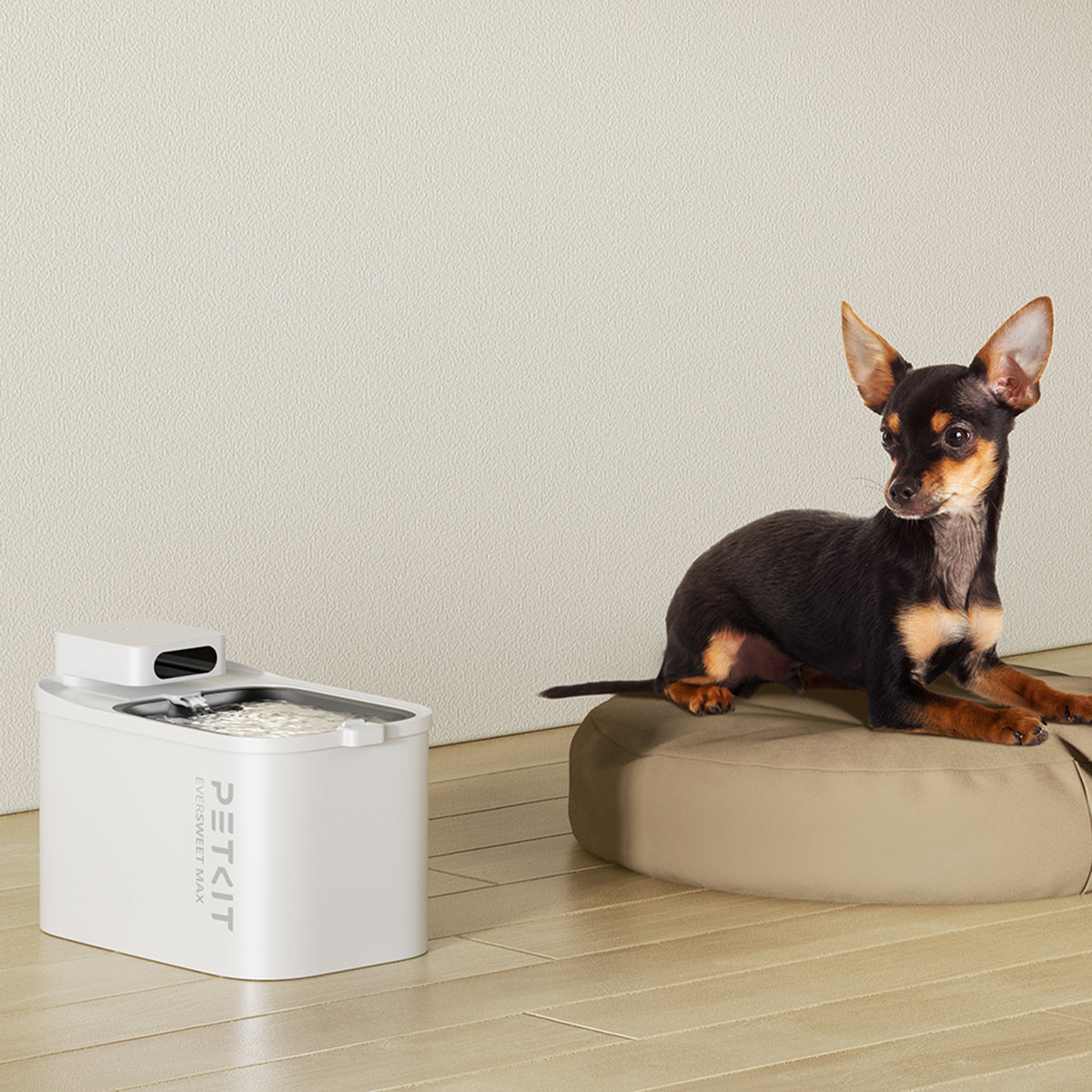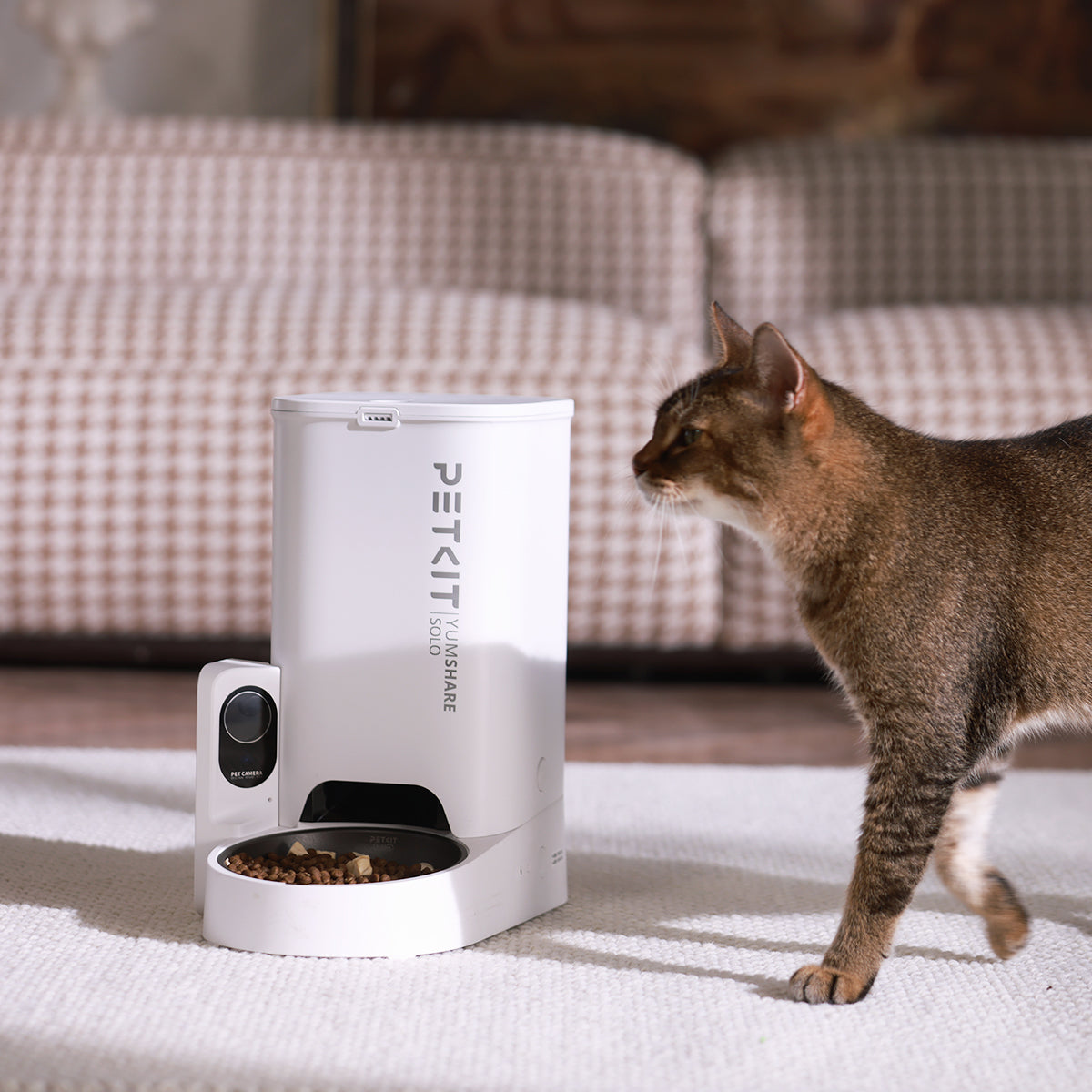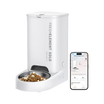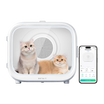This November, as we celebrate National Senior Pet Awareness Month, we honor the unique, irreplaceable joy that senior pets bring into our lives. While they may have a few gray whiskers or slower steps, the love and devotion they offer are truly timeless. With their gentle wisdom and deep loyalty, these pets fill our hearts with unmatched companionship, reminding us that age only deepens the bonds we share. Caring for a senior pet may require a bit more thoughtfulness, but with simple adjustments and a supportive routine, we can help them enjoy their golden years to the fullest.
Essential Tips for Senior Pet Care
Senior pets have specific needs that can be met with expert-recommended care. Here’s how to keep your senior dogs and senior cats living their best lives.
I. Prioritize Hydration for Senior Pets
Staying hydrated is especially important for senior pet health. The American Animal Hospital Association (AAHA) recommends ensuring that senior pets have access to fresh, flowing water to support kidney function and overall well-being. Keeping senior pets hydrated helps prevent dehydration, which is essential for aging pets.
II. Feed a Balanced, Portion-Controlled Diet for Senior Pets
The American Veterinary Medical Association (AVMA) emphasizes that a portion-controlled, nutrient-rich diet is key to supporting senior pets’ joint health, muscle mass, and energy. As pets age, they often become less active, which can lead to weight gain. Extra weight places strain on aging joints, worsens arthritis, and increases the risks of diabetes, heart disease, and mobility issues. A controlled feeding schedule and balanced diet can help prevent these health concerns, supporting overall senior pet health.
III. Monitor Daily Habits for Early Health Detection
Tracking a senior pet’s daily habits—like litter box use and activity level—can help detect early signs of health issues. Changes in litter box behavior, stool quality, or frequency can indicate kidney or digestive problems. Many experts recommend health-monitoring tools that can track these patterns and help you spot unusual changes in real time, allowing for prompt action to keep your senior pet healthy.
IV. Create Comfortable, Accessible Spaces for Senior Pets
For senior pets with arthritis or joint pain, the American Kennel Club (AKC) advises making spaces more accessible, with low-entry bedding and soft surfaces. Providing low-sided litter boxes or adding steps to help them access their litter box can ease strain on aging joints. Quiet, low-noise pet care products are also beneficial, especially for pets who may be more sensitive to sound in their senior years. If using automated devices, look for low-noise options to create a calm, comforting environment for your older pet.
V. Maintain a Consistent Routine for Senior Pets
According to the ASPCA, maintaining a steady routine is essential for senior pets, providing comfort, stability, and reducing anxiety. Consistent mealtimes, hydration, and bathroom breaks create a predictable environment where senior pets feel secure and relaxed. Adding a pet health-monitoring system can further support senior pet care by providing valuable insights into their changing needs.

Understanding the Low Adoption Rates of Senior Pets and the Rewards of Adopting Them
Despite the incredible love and loyalty that senior pets bring, adoption rates for older animals remain significantly lower than for younger ones. In the United States, only about 25% of senior pets in shelters find forever homes, compared to a 60% adoption rate for younger animals. This gap is often due to misconceptions that senior pets require more care. However, many senior animals are healthy and provide immense joy and companionship. Those who choose to adopt senior pets frequently discover that they are especially affectionate, calm, and deeply loyal, forming lasting bonds that enrich their lives and bring unparalleled companionship.
The Unique Joys and Benefits of Adopting a Senior Pet
I. Immediate, Deep Connection
Senior pets often form bonds quickly, appreciating the warmth and stability of a loving home. Many adopters describe a strong, almost immediate connection with their senior pets, who offer gentle companionship well-suited for families, singles, and seniors alike.
II. Established Personalities and Known Temperaments
Senior pets have developed personalities, making it easier to find a pet who matches your lifestyle. Whether you’re looking for a snuggly cat or a dog who enjoys quiet strolls, senior pets bring a level of consistency and predictability.
III. Gratitude and Devotion
Adopting a senior pet often brings a unique level of gratitude and loyalty. Many of these pets have experienced life’s challenges, making them especially appreciative of a stable, loving home.
IV. Healthier Lifestyles for Both Pet and Owner
Caring for a senior pet encourages healthy routines and gentle exercise, benefiting both pet and owner. Daily strolls or quiet play not only improve physical health but also foster a strong, fulfilling bond.

This National Senior Pet Awareness Month, let’s honor the love and joy that senior pets bring into our lives. By opening our hearts and homes to older animals, we’re not just rescuing pets; we’re gaining wise, loving companions who enrich our lives with unmatched devotion. Embracing a senior pet is a reminder that love doesn’t age, creating bonds that truly transcend time.
We’re also celebrating our senior buddies with a special treat! Enter for a chance to win one of two EverSweet 3 Pro (UVC) pet fountains (worth $160 total). Visit our Instagram and follow the steps to join!
We’d love to hear about your beloved senior pets! Please comment below and share their stories and the joy they bring to your life.
References:
1. American Kennel Club
2. American Veterinary Medical Association
3. American Animal Hospital Association
4. American Society for the Prevention of Cruelty to Animals (ASPCA)


